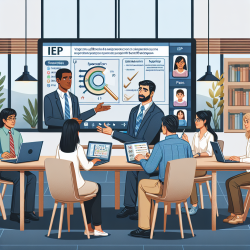In the ever-evolving landscape of healthcare, electronic consultations (e-consultations) have emerged as a transformative tool to enhance access to specialty care and improve overall patient outcomes. However, as with any innovation, e-consultations come with their own set of challenges and opportunities. A recent study titled Perspectives of VA Primary Care Clinicians Toward Electronic Consultation-Related Workload Burden offers valuable insights into how primary care clinicians perceive these challenges within the Veterans Health Administration (VHA) system.
The Promise and Challenge of E-Consultations
E-consultations are designed to streamline communication between primary care providers and specialists, thereby reducing patient wait times and unnecessary in-person visits. According to the study, clinicians acknowledged that e-consultations significantly improve the timeliness and quality of care. However, they also reported an increased workload due to the additional time required for entering, tracking, and following up on these consultations.
Understanding Clinician Perspectives
The study identified three key themes regarding the impact of e-consultations on clinician workload:
- Time Burden: Clinicians found that e-consultations added a significant time burden due to cumbersome templates and the need to provide extensive patient data.
- Shift in Responsibilities: There was a perceived shift in diagnostic and follow-up responsibilities from specialists to primary care clinicians, adding to their workload.
- Improved Care Quality: Despite the increased workload, clinicians agreed that e-consultations improved patient care by facilitating timely specialist input.
Strategies for Improvement
To address these challenges and maximize the benefits of e-consultations, practitioners can consider the following strategies:
- Optimize Templates: Work with IT teams to streamline e-consultation templates, ensuring they are user-friendly and only require relevant information.
- Clear Communication Protocols: Establish clear guidelines for communication between primary care providers and specialists to ensure responsibilities are well-defined.
- Training and Support: Provide ongoing training for clinicians on how to effectively manage e-consultations within their workflow.
- Feedback Mechanisms: Implement feedback loops where clinicians can share their experiences and suggest improvements for e-consultation processes.
The Road Ahead
The findings from this study highlight the need for further research to quantify the workload impact of e-consultations on clinician burnout and job satisfaction. By addressing these issues proactively, healthcare systems can ensure that e-consultations continue to be a valuable tool for improving patient care without overburdening primary care providers.
E-consultations hold great promise for enhancing healthcare delivery. By understanding and addressing the challenges faced by clinicians, we can create a more efficient and effective healthcare system that benefits both patients and providers alike.
To read the original research paper, please follow this link: Perspectives of VA Primary Care Clinicians Toward Electronic Consultation-Related Workload Burden.










